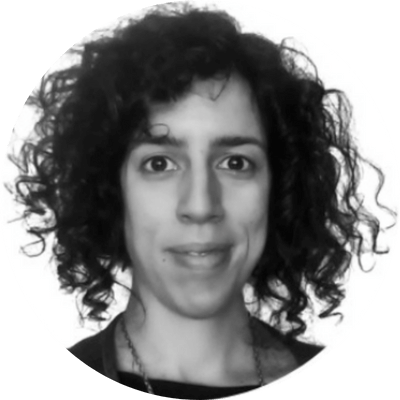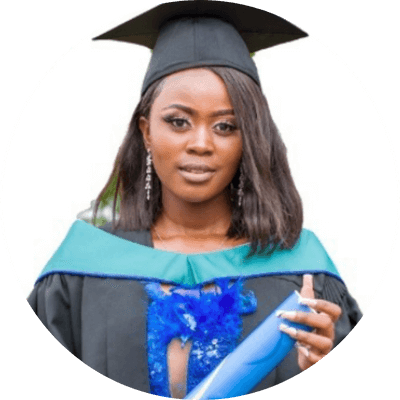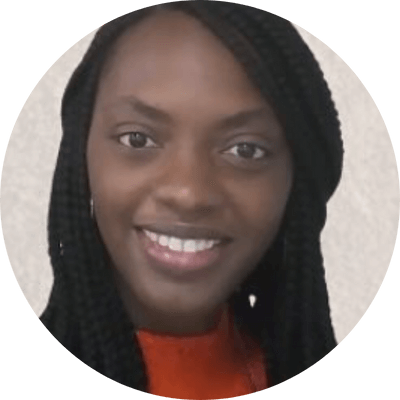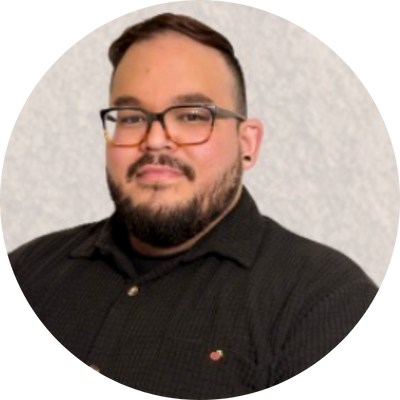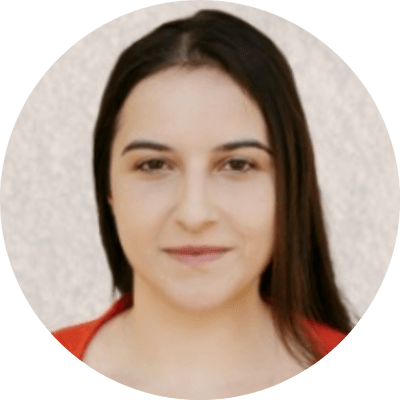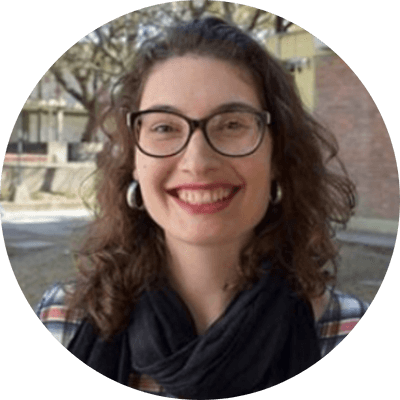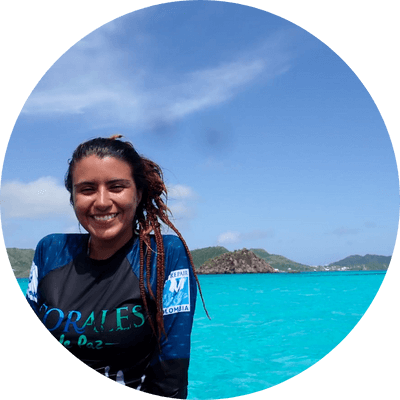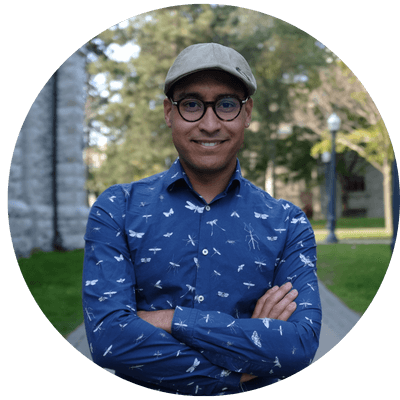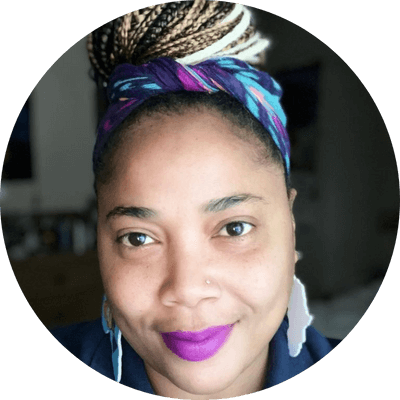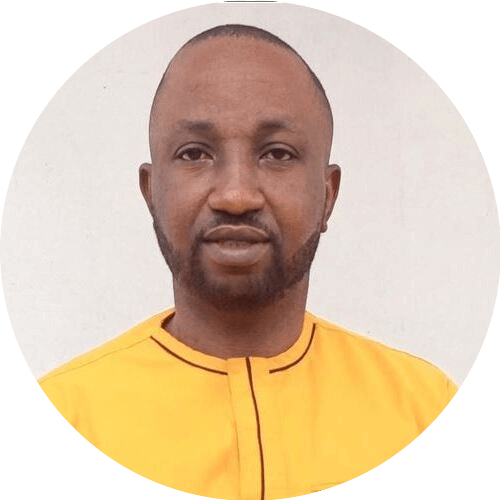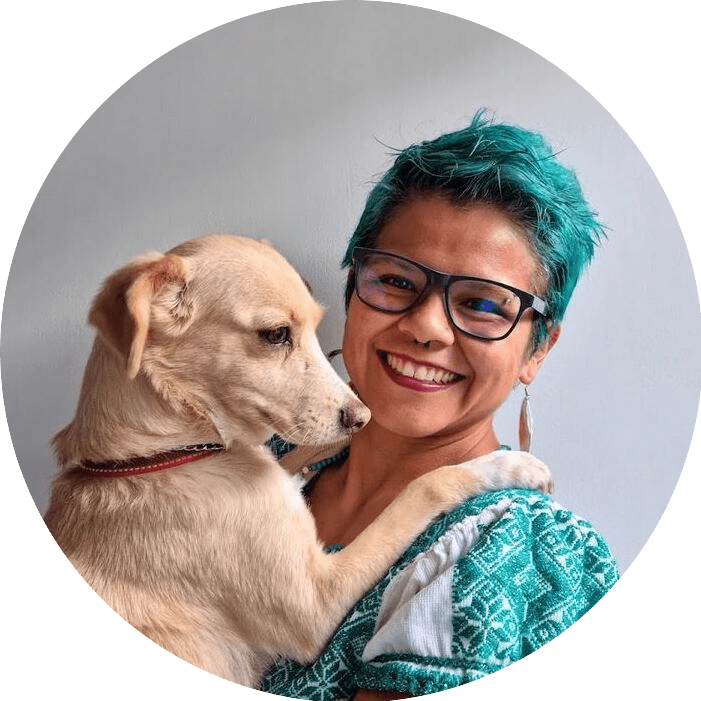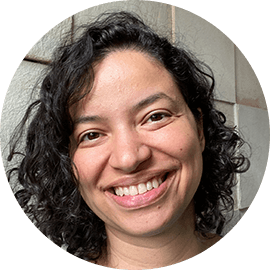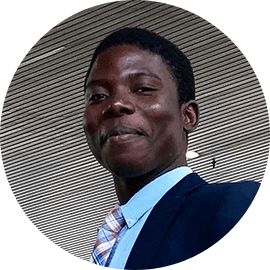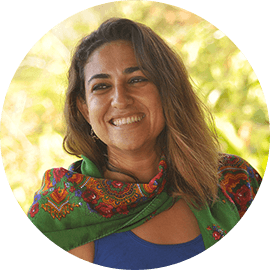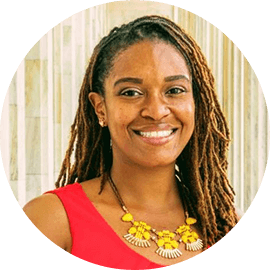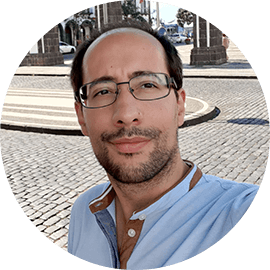Wir freuen uns sehr, die Gewinner:innen der MAXQDA-Forschungsstipendien der Edition Mai 2025 zum Thema Gesundheitswesen und öffentliche Gesundheit bekanntzugeben. Mit über 120 Bewerbungen von Forscher:innen aus den unterschiedlichsten Disziplinen und Regionen war die Resonanz überwältigend. Die eingereichten Projekte zeigen die bemerkenswerte Bandbreite der Anwendungsmöglichkeiten in der qualitativen Gesundheitsforschung mit MAXQDA. Von der Untersuchung der Lebenserfahrungen marginalisierter Bevölkerungsgruppen bis hin zur Erforschung der Rolle von Technologie im Gesundheitswesen spiegeln diese Projekte die vielfältigen Einsatzmöglichkeiten von MAXQDA in der qualitativen Forschung zu gesundheitsbezogenen Themen wider.
Die hohe Qualität der Bewerbungen machte den Auswahlprozess zu einer Herausforderung und Bereicherung zugleich. Wir freuen uns, die ausgewählten Projekte nun vorzustellen, die als herausragende Beispiele für mit MAXQDA durchgeführte Forschung stehen. Ein herzliches Dankeschön gilt allen Bewerber:innen für ihre wertvollen Beiträge und ihr anhaltendes Engagement, mit dem sie die Forschung zu den Themen Healthcare und Public Health vorantreiben.
Die Gewinner:innen der MAXQDA-Forschungsstipendien
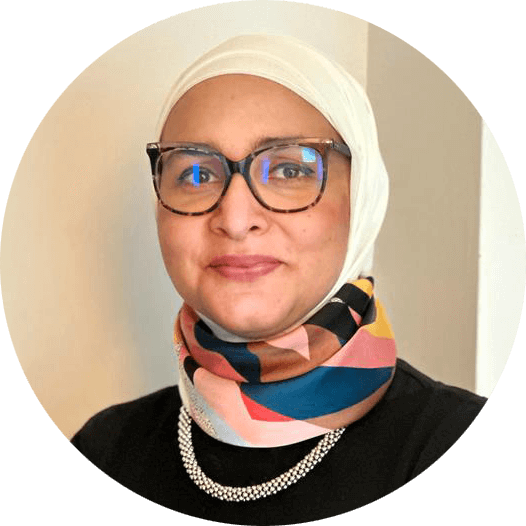 Aya Elghandour
Aya Elghandour(Architektin und PhD Kanditatin, University of Sheffield, School of Architecture, Großbritannien)
Integrating Health and Financial Wellbeing into Life Cycle Costing for Affordable Housing Design
Wir sind sehr beeindruckt von dieser aktuellen und bedeutsamen Forschungsarbeit, die die Bezahlbarkeit von Wohnraum aus der Perspektive der öffentlichen Gesundheit neu beleuchtet. Das Projekt untersucht, wie sich die Lebenszykluskostenrechnung (LZR) unter Berücksichtigung der langfristigen Gesundheit und des finanziellen Wohlergehens neu definieren lässt, und liefert damit eine überzeugende Antwort auf die sozialen und wirtschaftlichen Folgen von Substandard-Wohnungen.
Das Projekt hebt eine kritische Forschungslücke hervor: Entscheidungen, die in der Entwurfsphase getroffen werden und oft von engen Kostenmetriken bestimmt sind, können sich weitreichend auf die Gesundheit auswirken – insbesondere für marginalisierte Bevölkerungsgruppen. Die Forschungsarbeit befasst sich mit einem erheblichen Mangel der LZR: ihrer Unfähigkeit, die langfristigen gesundheitlichen Folgen von Bauprojekten zu berücksichtigen. Obwohl die LCC die Gestaltung gesundheitsgerechterer Wohnungen unterstützen könnte, wird sie häufig auf eine Weise verwendet, die nur auf die Optimierung kurzfristiger finanzieller Erträge abzielt. Infolgedessen werden kritische Merkmale wie Isolierung und Belüftung unterbewertet, obwohl sie zur Verhinderung von Krankheiten und infolgedessen zur Senkung der nationalen Gesundheitskosten beitragen könnten. Durch die Betrachtung der LZR unter dem Gesichtspunkt der gesundheitlichen Chancengleichheit unterstreicht dieses Projekt die Notwendigkeit systemischer Veränderungen bezüglich der Erschwinglichkeit und bei Wohnbauentscheidungen, insbesondere im Hinblick auf marginalisierte Bevölkerungsgruppen.
Besonders überzeugt hat uns die durchdachte Integration von MAXQDA. Es spielt eine zentrale Rolle bei der Erfassung der Stakeholder-Perspektiven, der Identifizierung institutioneller Barrieren und der Entwicklung einer gesundheitsbezogenen LZR-Taxonomie. Der geplante Einsatz von MAXQDA für die vergleichende Stakeholder-Analyse, das „Co-Occurrence-Mapping“ und die Validierung der Taxonomie zeugt von methodischer Stringenz und Innovationsgeist.
Wir freuen uns, dieses Projekt mit unserem Stipendium unterstützen zu können, und werden Ayas zukünftigen akademischen Weg mit großem Interesse verfolgen.
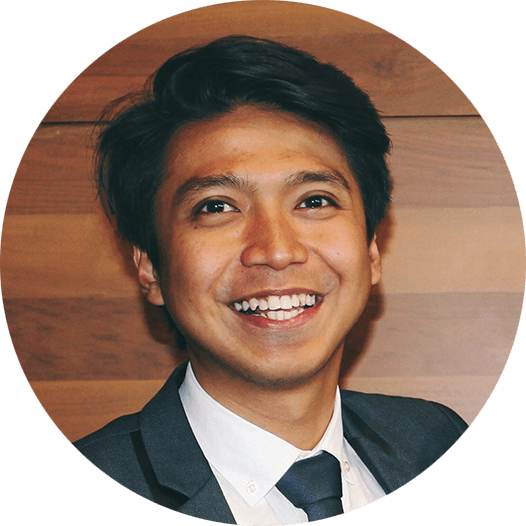 Dr. Fernan Talamayan
Dr. Fernan Talamayan(Soziologe, Digital Analyst und Social Media Analyst, Freier Wissenschaftler)
Navigating Health in Crisis: Trust and Vaccine Hesitancy during Myanmar’s 2024 Cholera Outbreak
In einer innovativen qualitativen Studie untersuchte Fernan den Einfluss von politischer Instabilität, Desinformation und gesellschaftlichem Misstrauen auf das Gesundheitswesen während des Cholera-Ausbruchs in Myanmar im Jahr 2024.
Die Analyse von Interviews, Nachrichten und Social-Media-Daten mit MAXQDA zeigt: Weit verbreitetes Misstrauen gegenüber der Regierung nach dem Putsch schränkte die Akzeptanz des oralen Cholera-Impfstoffs stark ein – trotz hoher Aufmerksamkeit für den Ausbruch.
Die Studie zeigt, dass die zögerliche Haltung gegenüber Impfstoffen in Konfliktgebieten nicht primär auf mangelndes Wissen, sondern auf tiefsitzende politische Ängste, wahrgenommenen Zwang und einen Zusammenbruch der institutionellen Glaubwürdigkeit zurückzuführen ist. Aus den Daten ergaben sich Themen wie Misstrauen, Widerstand und ungleicher Zugang zu Ressourcen. Diese zeichnen ein differenziertes Bild der Reaktionen der Gemeinschaft in einem fragmentierten Gesundheitsumfeld.
Es lassen sich bedeutsame Erkenntnisse aus Fernans Arbeit ableiten. In fragilen Kontexten müssen effektive Gesundheitsmaßnahmen das Vertrauen wiederherstellen, Desinformation entgegenwirken und die Gemeinschaften sinnvoll einbinden. Damit leistet die Studie nicht nur einen Beitrag zum akademischen Verständnis des Gesundheitsverhaltens in Krisengebieten, sondern fordert auch einen Paradigmenwechsel in der Strategie des öffentlichen Gesundheitswesens: Vertrauen muss als Kernbestandteil jeder Notfallmaßnahme betrachtet werden.
Wir sind von diesem Forschungsthema und seinem durchdachten, auf die Bedürfnisse der Gesellschaft ausgerichteten Design beeindruckt. Der innovative Einsatz qualitativer Methoden zur Erforschung der Wechselwirkungen zwischen Vertrauen, Gesundheit und Politik in einem von Konflikten geprägten Umfeld ist sowohl theoretisch als auch praktisch relevant.
Besonders beeindruckt hat uns die strategische Verwendung von MAXQDA zur Analyse sozialer Medien und des Nachrichtendiskurses. Wir freuen uns, Fernan mit unserem #ResearchForChange-Stipendium auszuzeichnen, und sind gespannt auf die Auswirkungen dieser wichtigen Arbeit auf zukünftige Gesundheitsmaßnahmen in Myanmar und darüber hinaus.
 Zoe Sirotiak
Zoe Sirotiak(PhD Kandidatin in Immunbiologie, Kinesiologie und Psychologie, wissenschaftliche Mitarbeiterin, Iowa University, USA)
Understanding Long COVID Experiences in Primary Care through Mixed Methods Analysis
In diesem Forschungsprojekt werden die Lebenserfahrungen von Personen mit Long-Covid untersucht. Dabei stehen folgende Fragen im Mittelpunkt: Wie finden sie sich in den Systemen der Primärversorgung zurecht? Welcher Stigmatisierung sind sie möglicherweise ausgesetzt? Welche Auswirkungen haben diese Erfahrungen auf ihre psychische Gesundheit und ihr allgemeines Wohlbefinden? Mithilfe eines Mixed-Methods-Designs kombiniert die Studie Interviews mit symptombasierten Erhebungen, um zu untersuchen, inwiefern sich subjektive Erfahrungen mit messbaren physischen und psychischen Belastungen überschneiden.
Eine wichtiger Bestandteil des Projekts ist die Verwendung von MAXQDA zur Integration qualitativer und quantitativer Daten. Die Software ermöglicht eine systematische thematische Analyse der Interviews und verknüpft Schlüsselthemen wie wahrgenommene Stigmatisierung oder Pflegequalität mit Erhebungsvariablen wie Müdigkeit, kognitive Beeinträchtigung und Depression. Mithilfe der Visual Tools von MAXQDA wie etwa MAXMaps und dem Code-Relations-Browser identifizierte Zoe aussagekräftige Muster in den Datensätzen. Diese ermöglichen ein umfassenderes, ganzheitlicheres Verständnis der Auswirkungen von Long-Covid auf die Patient:innen und ihre Erfahrungen im Gesundheitswesen.
Die Studie zielt darauf ab, praktische, evidenzbasierte Empfehlungen für eine empathische und reaktionsschnelle Primärversorgung zu entwickeln, die Menschen, die mit den Langzeitfolgen des Virus leben, letztlich eine bessere Unterstützung bietet. Dafür stellt Zoe die Erzählungen von Patient:innen in den Mittelpunkt und nutzt die analytischen Werkzeuge von MAXQDA.
Die große Zahl Betroffener und die begrenzte medizinische Unterstützung haben uns sehr berührt. Wir sind stolz darauf, das Projekt mit unserem Stipendium unterstützen zu können.
Honourable Mentions
Auch bei den ehrenvollen Erwähnungen wurden einige wirklich spannende Projekte eingereicht, die uns nachhaltig beeindruckt haben. Wir möchten sie hier kurz vorstellen und ihnen für ihre wertvollen Beiträge herzlich danken. Vielen Dank, dass Sie Ihre inspirierenden Forschungsarbeiten mit uns teilen!
The Social Experience of HIV: Seropositivity and Undetectability Among Men Who Have Sex with Men (MSM) in Poland
Bodies, Borders and Belonging: Reproductive Healthcare in Northern Ireland’s Nationalist Imaginaries
Mental Health, Behavioural Change, Innovation und Investment
Reproductive Justice and Public Health in Times of Climate Crisis: An Intersectional Analysis of Youth Policies and Experiences in Latin America and the Global South
The health vulnerability of Amazonian riverside communities in the face of extreme climate events: A Qualitative study
Preise
Forschungsstipendium
Einmaliger 500$ Zuschuss (in der Währung Ihres Bankinstituts)
Lizenz
Eine 1-Jahres-Lizenz für MAXQDA Analytics Pro mit AI Assist Premium für Sie oder ein:e Freund:in
MAXQDA Trainingsgutschein
Gültig für alle offiziellen MAXQDA Schulungen von zertifizierten Trainer:innen (bis zu einem Wert von 150€)
VIP Customer Service
VIP Customer Service vom technischen MAXQDA Support
Zugang zum Selbstlernkurs
Zugang zu unserem Selbstlernkurs „Proficient MAXQDA User“ (im Wert von 200€)
Aufmerksamkeit und Reichweite
Ihre Forschung wird auf der MAXQDA Webseite und in den sozialen Medien veröffentlicht
Ehemalige Themen und Geförderte
Das #ResearchforChange-Stipendium ist eine Initiative von VERBI Software, die darauf abzielt, Forschende, Forschungsprojekte und Netzwerke zu unterstützen. Das Stipendium bietet finanzielle Unterstützung und methodische Schulungen für Nachwuchsforschende und all jene, deren Arbeit Empowerment-Initiativen untersucht, unterstützt und das Bewusstsein für sie schärft. Wir haben uns entschieden, die MAXQDA Grants im Zeichen global relevanter, wechselnder Themenmonate zu verleihen – mit jeweils drei Gewinnenden pro Stipendium.

